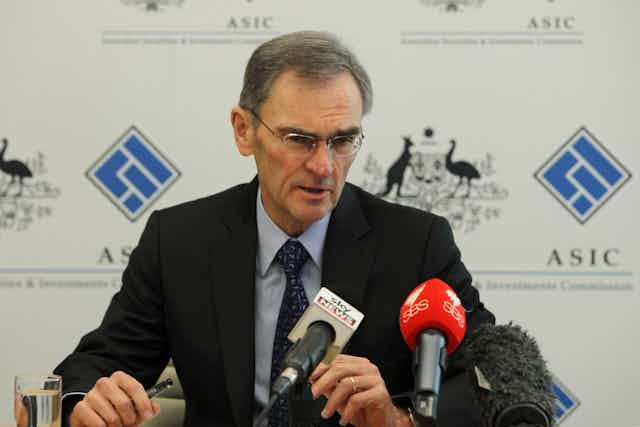In it’s latest report, the Australian Securities & Investments Commission (ASIC) found the big four banks sold products to some customers through their adviser network, with a fee for ongoing advice, but the advice was never given.
None of this came to light until the banks were asked by ASIC to look at adviser compensation, following the introduction of the Future of Financial Advice (FOFA) legislation in 2013.
No wonder the banks were wary of their practices being investigated. Not only has it come to light that many customers (176,000 at the last count) were being charged for services they were not receiving but, in many cases, the banks didn’t have the data they needed to find out whether customers had been dudded or not.
And ASIC is pretty sure why such systemic issues emerge at regular intervals, stating:
Cultural factors in the banking and financial services institutions covered by this report may have contributed to the systemic failures we observed.
The ASIC report details the reason for the cultural failings it observed in the wealth management businesses of the major banks:
Some advice licensees prioritised advice revenue and fee generation over ensuring that they delivered the required services.
ASIC found that the IT systems in wealth management in the major banks were stone-aged at best. The banks appear to have no idea what they don’t know, but are all working to identify how many more customers need to be compensated.
ASIC also found that some banks failed to keep complete or accurate records to enable compliance to be analysed. And in some cases, authorised representatives had taken customers’ files with them when they left the firms, making it impossible to check whether or not advice was given.
It appears that every time a question is asked of the big banks, another example of bad behaviour is unearthed.

In the recent questioning of bank CEOs by the House Economics Committee, questions were raised with all CEOs about systemic issues. The answers were generally evasive and short on specifics.
For example, when talking about a different but related, financial planning scandal, Andrew Thorburn, NAB CEO, said:
“We did a review and we had an independent party come and do that review with us, and we concluded and we stand by that, that it was not a systemic issue.”
What Mr Thorburn and other CEOs neglected to mention was that the banks had, as revealed in ASIC’s report, all already been in the middle of deep discussions about so-called “fee-for-services failures” . The regulator wrote:
Of particular concern is that many of the banking and financial services institutions covered by this review publicly state that their core values include being customer focused, “doing what is right” for customers, and acting with integrity. We encourage the institutions reviewed in this report to consider how their culture may have supported these systemic failures, and why their stated commitment to providing excellent service to customers is not translating into good outcomes for customers in the many instances we identified in this report.
At long last, ASIC has highlighted cultural issues across the industry that the boards and management of the largest banks have long refused to acknowledge.
The regulator has done its job and found compelling evidence that the culture of the banks is rotten.
It’s over to the politicians now.

